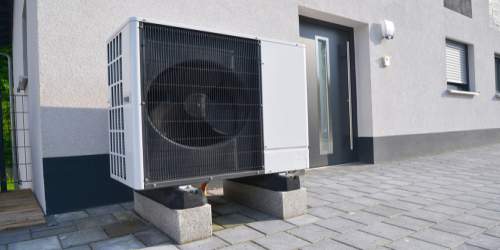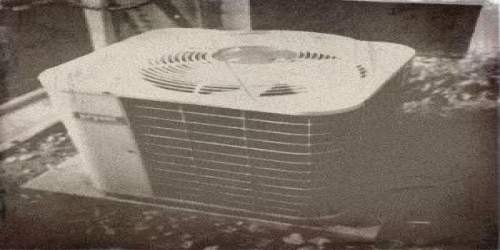Read Time : 3 Minutes
How Do Heat Pumps Work in Cold Weather?
Heat pumps are some of the best and most cost-effective alternatives to conventional heating methods. They tend to reduce your impact on the environment due to the fact that the amount of emissions produced is greatly decreased. It is even possible to power them with renewable energy sources so that you can have an even greener way of heating your home and/or water. However, it has been noted that warmer weather might be better for these systems, and that colder temperatures can reduce their efficiency. A lot of this can depend on the type of heat pump you use, which is why this page is here to give you a hand when it comes to choosing.
The Best Weather for Heat Pumps
The best weather for heat pumps to operate in is warm or moderate. This is because it allows them to easily extract the surrounding heat and convert it into energy efficiently and effectively. Plus, the fact that they can be used as heaters and/or air conditioners means that even if you live in a hot country, you may discover that a heat pump is a good investment.
It should be noted that some heat pumps work better in colder climates than others, and this will be detailed further in the following sections. The reason for this is that during the colder weather in winter months, heat pumps that have exposed piping will need to work a lot harder to provide your home with heat than they would during the milder autumn weather.
If the heat pump system is unable to get enough warmth from the air, then a supplementary system will be needed instead. This can lead to an increase in your energy bills for a short period of time each year. For some, this can become an inconvenience as the point of purchasing the heat pump was to save on energy bills as well as to use a greener energy source.
The heat pumps that have exposed piping tend to be much more at risk in colder weather than those whose piping is buried in the ground. In the following section, we will take you through the best models for use in cold weather.
COMPARE PRICES FROM LOCAL INSTALLERS
Compare prices from local companies fast & free
Enter your postcode to compare quotes from leading professionals. We promise to keep your information Safe & Secure. Privacy Policy
Which Heat Pump is Best for Cold Weather?
The overall winner for the best cold weather heat pump is the ground source (geothermal) heat pump. It is considered the best to use because it is buried underground which has a natural and constant supply of warmth. Due to the fact that the piping is buried at a decent depth, the frost and cold weather cannot reach it – so it is protected from freezing by the natural warmth that the ground provides.
What this also means is that no efficiency will be lost at any point in the year, which works in contrast to the air source heat pump. This is because it is installed outside and exposed. The next section will take a more in-depth look at why it is not always suitable for cold weather.
Why Air Source Heat Pumps Lose Efficiency in Cold Weather
The amount of heat that can be transferred to you home by an air source heat pump is massively reliant on the outdoor temperature. As the temperature outside drops, so does the overall heat output of the air source heat pump.
The heating capacity of the air source heat pump also tends to drop as the outside temperature decreases. The air source heat pump is typically sized to be able to produce heat for 80-90% of your annual load, and when the temperatures are above freezing, it should be able to fill 100% of the heating requirements for your home.
As a result of this, it is recommended that you have a backup source of heating available for when the outside temperature drops. This way, it is able to pick up the slack when your air source heat pump starts to decline in efficiency.
If you don’t want your home hooked up to the gas mains, electric mains, or other forms of conventional heating, you can purchase metal canisters that are filled with gas. These can be used in faux fireplaces and other containers to heat your home. These tend to have low costs and are also able to back the air source heat pump up nicely.
What to Do if Your Heat Pipe is Frozen
You should not become concerned about your air source heat pump freezing. This is something that does tend to happen in cold weather, and it is normal for the piping and pump to suffer a little as a result. As a side note, you should never pour antifreeze into the piping when it is frozen as this will end up making things worse.
When it is frozen, your air source heat pump should go into defrost settings automatically. This means that most of its energy will go towards thawing the ice that has formed in and around the piping. If this is not done automatically, you should consult the owner’s manual to see if there is a defrosting process that you are able to start yourself. Failing this, call the supplier of your heat pump and ask for their advice. Don’t try and fix the situation yourself without asking the professionals for advice.
Want to Know More?
Have you found yourself interested in heat pumps? If you want to know more then make sure you head to our Renewable Shop where you can find our full range of products, each with the relevant information. Or simply give us a ring using the number at the top of this page and have a chat.
Find a local installer
Welcome to the biggest directory of UK renewable energy companies





 How does a Heat Pump Work
How does a Heat Pump Work








